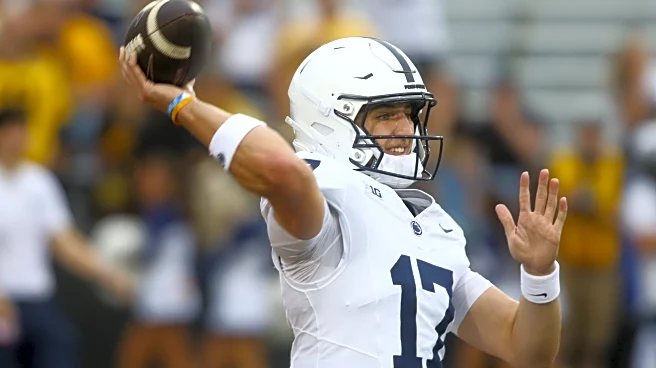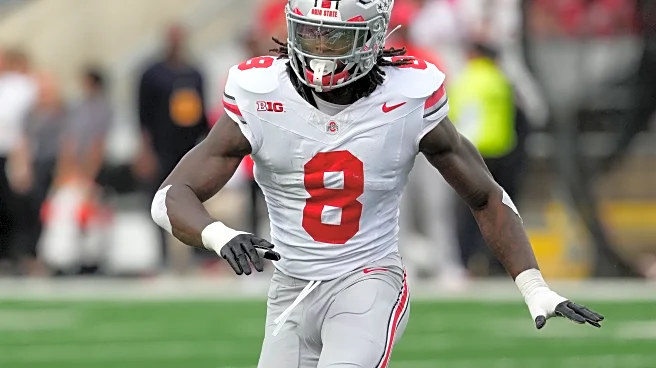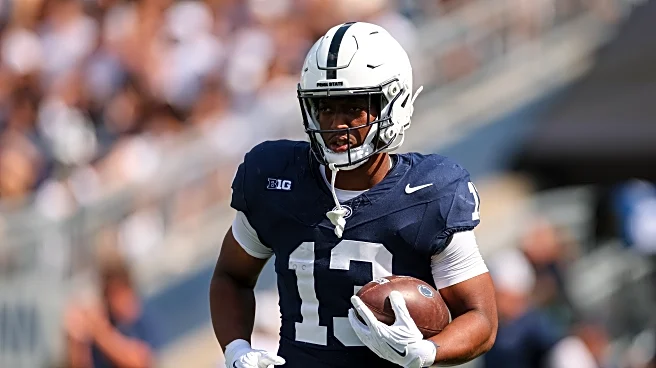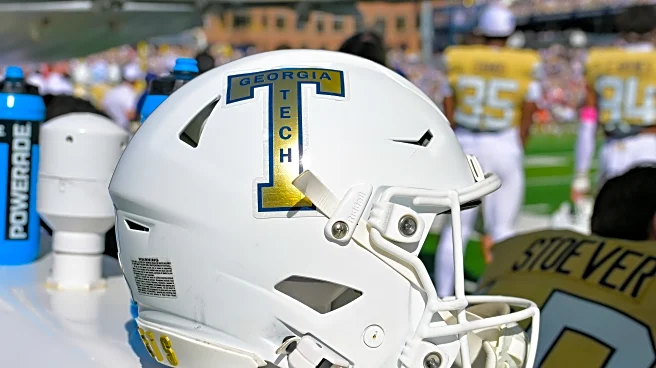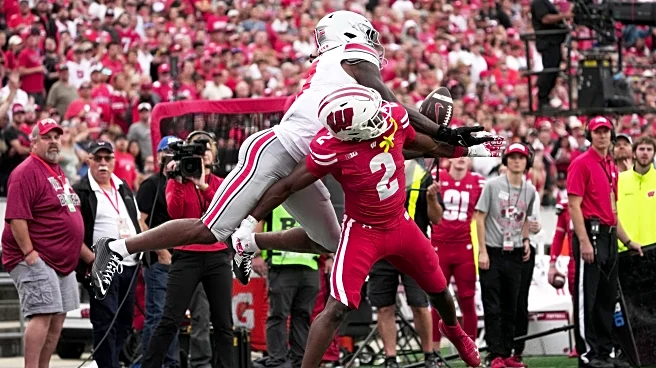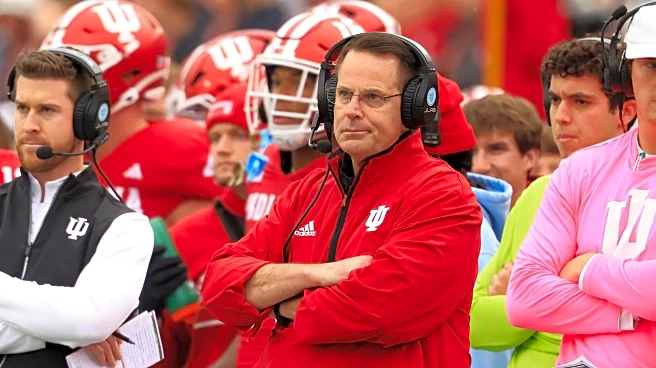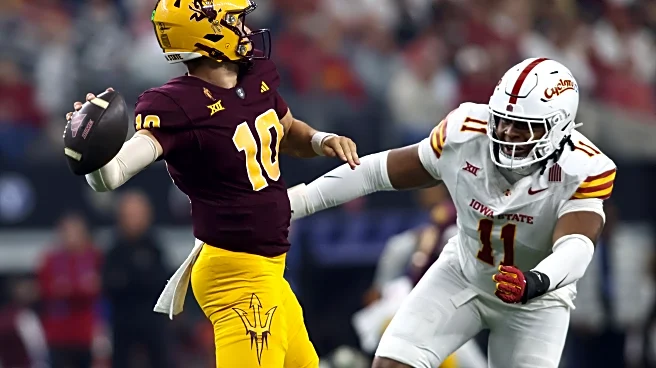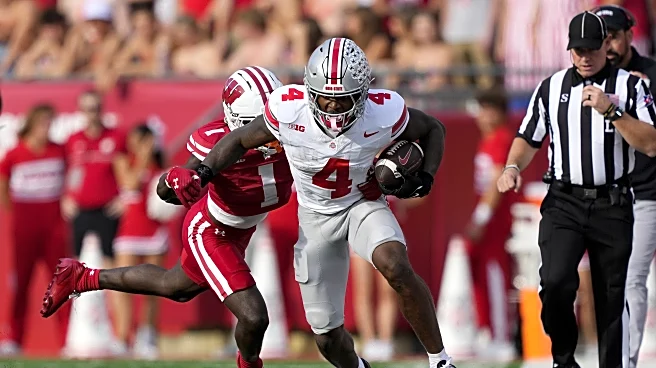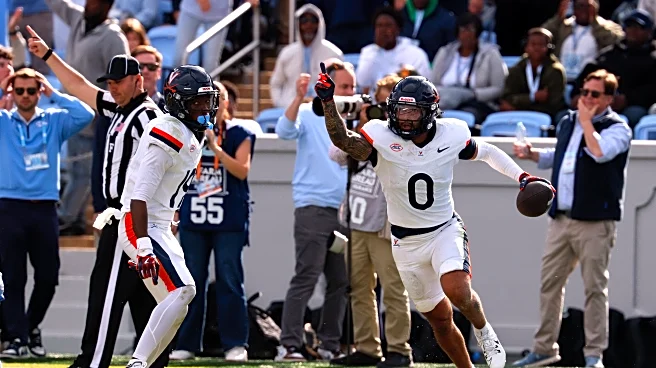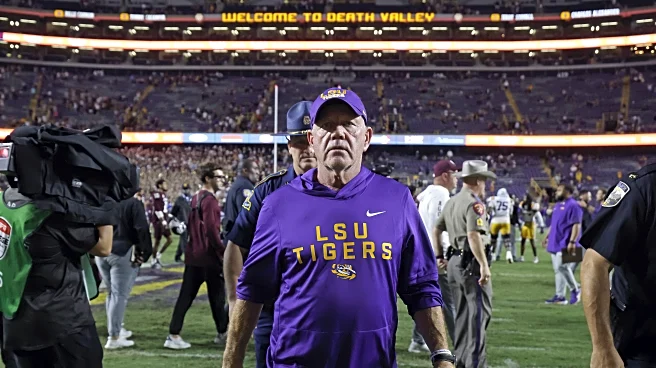What's Happening?
Penn State University has initiated a search for a new head football coach following the dismissal of James Franklin on October 12. Franklin was let go after consecutive losses to Northwestern and UCLA,
which effectively ended Penn State's chances of making the College Football Playoff this season. Despite Franklin's record of winning 10 or more games in each of the last three seasons, including a semifinal appearance in 2024, his struggles against top-10 teams and recent defeats against unranked opponents led to his firing. The search for Franklin's replacement has seen several potential candidates, such as Curt Cignetti and Matt Rhule, sign extensions with their current teams, narrowing the pool of available options.
Why It's Important?
The decision to fire James Franklin and the subsequent search for a new head coach is significant for Penn State's football program and its stakeholders. Franklin's buyout, reportedly worth $49 million, poses a financial challenge for the university, especially amid ongoing renovations at Beaver Stadium and the competitive landscape of the NIL era. The choice of Franklin's successor will impact Penn State's ability to compete in the Big Ten and maintain its status as a national contender. The new coach will need to navigate the complexities of modern college football, including player transfers and NIL deals, to ensure the program's success.
What's Next?
Penn State is evaluating several candidates to fill the head coach position. Among the top contenders are Jeff Brohm from Louisville, Brian Kelly, formerly of LSU, Manny Diaz from Duke, Alex Golesh from South Florida, Matt Campbell from Iowa State, and Pat Fitzgerald, formerly of Northwestern. Each candidate brings unique strengths and experiences, and Penn State must weigh these factors to make a strategic decision that aligns with its long-term goals. The university's choice will likely influence its recruiting efforts and competitive standing in the Big Ten.
Beyond the Headlines
The firing of James Franklin and the search for his replacement highlight broader trends in college football, such as the increasing influence of NIL deals and the transfer portal on coaching decisions. The financial implications of Franklin's buyout and the potential costs associated with hiring a new coach underscore the economic pressures facing collegiate athletic programs. Additionally, the situation reflects the high expectations and scrutiny placed on coaches in major college football programs, where performance against top-tier teams can significantly impact job security.


